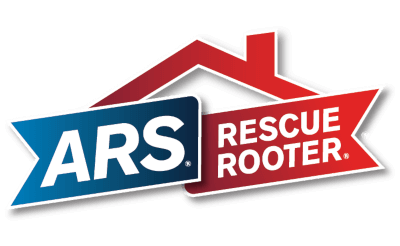 HVAC Systems
HVAC Systems
There is More Than One Way to Achieve Comfort
From swamp coolers to dual-fuel heat pumps, there are many different types of HVAC systems available. Your local ARS®/Rescue Rooter® professional can help you decide on the right system to install in your home—or provide the prompt, dependable repairs and maintenance you need for your current HVAC setup to keep it running strong all year-round.
Check out the most common types below, or contact us today to schedule a no-cost analysis of your current HVAC system—and a friendly chat about your heating and cooling wish list.
What Is an HVAC System?
An HVAC (short for heating, ventilation, and air conditioning) system is designed to keep your home comfortable throughout the year, providing cooled or heated air depending on how you have set the thermostat.
Before you contact the experts at ARS/Rescue Rooter for HVAC inspection, you may have some questions about what’s involved in selecting the ideal HVAC system in your home, as well as installing, maintaining, repairing, or replacing it.
HVAC systems typically are made with:
- Heat pumps/furnaces
- Air conditioners
- Air filters
- Thermostats
- Ducts
What follows are answers to the most common questions from our customers:
What Are Common HVAC Terms?
When speaking with an HVAC system service professional, you may encounter some unfamiliar terms. Here are examples of common terms that we routinely use in the HVAC industry:
- AFUE: This expresses how efficiently a furnace runs, with a higher percentage indicating lower operating costs and better efficiency.
- Cooling stages: With a multi-stage (AKA “variable”) setup, you have more precise options to better control temperature and your energy usage (for lower utility bills).
- ENERGY STAR: A government program to promote the use of energy-efficient systems.
- Heating stages: A multi-stage system has multiple settings for the heat pump or furnace.
- HSPF: This shows the ratio of a heat pump’s heating efficiency, with a rating of 8 or more being highly efficient.
- SEER: The higher the number, the more efficiently an air conditioner or heat pump functions.
When Should I Schedule Seasonal Maintenance for My HVAC System?
To reduce the total cost of ownership of HVAC systems, prudent homeowners will make sure to schedule maintenance on a regular basis. Ideally, you will contact ARS/Rescue Rooter to book an appointment to maintain your heating system near the end of summer or by the start of fall. To keep your air conditioning system properly maintained, please remember to call us for an appointment at the end of winter or early in the spring.
What Are the Benefits of Speaking With an HVAC Dealer?
It makes sense to talk with one of our professionally trained HVAC dealers. We stay current on industry updates, so we can guide you in finding the right HVAC equipment for your family’s needs. As HVAC experts, we have years of experience sizing HVAC systems to people’s homes. We are also adept at troubleshooting problems with heating and air conditioning equipment, enabling us to quickly come up with a solution for whatever problem you might have.
What Are the Most Used Cooling and Heating Products?
Over the years, we’ve seen that the following are the most commonly installed HVAC products:
- Air conditioner: Responsible for removing hot air from the home and delivering cooled air.
- Air handler: Operates in conjunction with the heat pump (see below) for circulating air in your dwelling. It’s not required if your system has an air conditioner or furnace.
- Ductless system: If you don’t need to provide heating and cooling to the entire house, you can have ARS/Rescue Rooter install a ductless system, which will condition a single room with no need for ducting.
- Heat pump: Prized by many homeowners because of the lower utility costs, a heat pump takes advantage of the temperature difference between the air outside and inside the home to deliver cooling in the summer and heating in the winter.
- Thermostat: This device is essential for automatically controlling how hot or how cold your home is, according to the settings you program.
How Do You Know When It’s Time to Repair or Replace an HVAC System?
If your HVAC system has not been giving you any problems lately (or ever), but you are starting to notice performance issues or hear strange sounds, you’ll want to arrange for expert repair service from ARS/Rescue Rooter to see about remedying the situation.
Many factors can indicate it’s time for replacement instead of attempting repairs:
Skyrocketing utility bills (when you have not changed your AC or furnace usage) indicate the system may be due for replacement, as it is no longer operating efficiently. You’ll also want to consider replacement if the HVAC setup isn’t giving you the same level of performance as when it was installed. If you have been scheduling frequent service calls for repairs, it’s another sign that now is the time to replace your heating and cooling system.
If your AC equipment has a SEER rating of 10 or less or if it’s more than 10 years old, it’s time to replace it. If your heating equipment has an AFUE rating of 80% or less or if it’s more than 15 years old, you know it’s time to install a replacement.
What Is the Typical Cost of a New Furnace or Air Conditioner?
This is a complex question that will yield different answers depending on what state you live in, how large your home is (how much heating and cooling capacity you require), and the brand and model in which you are interested. Contact the experts at ARS/Rescue Rooter for professional sizing of your system and help with comparing your options.
What Influences How Much a New HVAC System Will Cost?
The size of your home is a major factor in how much your new HVAC system will cost. A small house is less expensive to cool and heat than a larger structure.
Local climate in your region plays a part in determining the cost of your cooling and heating equipment. People dwelling in hot, humid areas run the AC more, while those inhabiting cooler regions in the north tend to need more powerful furnaces, so costs will vary considerably.
If your home does not have ductwork or needs replacement ducts, the cost could increase by up to $3,000.
At ARS/Rescue Rooter, we understand the importance of a comfortable home. Our HVAC repair and installation services ensure your system is running efficiently, keeping you comfortable all year long. We service the major brands, including Carrier, Lennox, York, Mitsubishi and Rheem. Contact us today!
At ARS®/Rescue Rooter®, we take pride in providing service for top brands such as Rheem. We offer expert installation, maintenance, and repair for Rheem heating, air conditioning, and water heaters.
LEARN MORE »At ARS®/Rescue Rooter®, we know that you take pride in your home or business. To get the most from your investment, you choose quality brands such as Carrier to provide excellent heating and cooling.
LEARN MORE »ARS®/Rescue Rooter® offers high-quality service for YORK HVAC systems. We understand that your choice of HVAC equipment is an investment that requires time, effort, and money to maintain.
LEARN MORE »ARS®/Rescue Rooter® is proud of our reputation in the industry for providing trustworthy, professional HVAC services. Our Mitsubishi heating and cooling technicians have years of experience installing and repairing systems. We do the job properly and efficiently.
LEARN MORE »You can depend on the experts at ARS/Rescue Rooter to deliver professional, efficient dryer vent repair. Our extensive experience and embrace of industry best practices means we are qualified to safely repair all models of dryer systems from the major manufacturers.
LEARN MORE »Installing a new HVAC system is a big investment, and you deserve a great result. At ARS/Rescue Rooter, we offer professional HVAC installation.
LEARN MORE »Also known as an evaporative cooler, this system creates a natural and energy-efficient way to cool outdoor air and direct it inside the home. Best suited for hot, dry climates.
LEARN MORE »Want the best from your HVAC equipment? Hoping to avoid emergency repairs this season? Call ARS/Rescue Rooter for expert HVAC maintenance.
LEARN MORE »Heat and cool individual rooms or zones using a series of small units. Ductless may be a good choice if you can't extend your existing ductwork—or you live in an older home with no ductwork whatsoever.
LEARN MORE »Ground temperature is warmer than the air in winter and cooler than the air in summer. Geothermal heat pumps exchange heat with the earth to heat and cool your home.
LEARN MORE »Zoning can be accomplished in different ways, including single-system and multiple-unit setups. The end result is the same: you'll be able to save energy by managing the climate in specific parts of your home.
LEARN MORE »Heating elements under the floor (or sometimes in the ceiling or walls) provide warmth, while empty floor tubing is used to create a cool floor that absorbs excess heat in the summer.
LEARN MORE »An efficient option for heating homes in warm climates, heat pumps are essentially air conditioners that can switch to become heaters by using the heat generated by processing refrigerants.
LEARN MORE »A dual-fuel heat pump is an electric heat pump and a gas furnace all in one. That makes it an ideal system for generally mild climates where it's unusual for the temperature to drop below freezing.
LEARN MORE »




Step 2 of 2